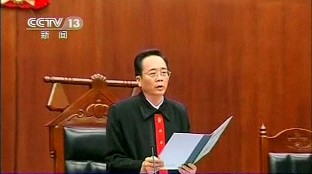China's new crop of soon-to-be jurors have a new set of selection and regulation procedures to face. It's the first among China's new policies working toward the reformation of the jury system.
The new regulation specifies the screening process for jurors and outlines their professional relationship with judges.
As an official that holds the same power as a judge in Chinese courts, stringent procedures are deemed necessary for selecting the nation's future jurors.
Changes rolled out by the new regulation include the issue of the age of eligibility. Prior to the new regulation, citizens over 23 years of age were accepted as candidates. The new rule has raised the age of eligibility to 28 years.
On the other hand, the educational attainment requirement was lowered from junior college to senior high school.
Another major change brought about by the new rule is the selection mechanism. Aspiring jurors are selected randomly by local qualified people instead of personal application or organizational recommendation.
Jurors are becoming increasingly important in Chinese courts, where they form at least one-third of a collegial panel.
In 2014, 210,000 jurors were used in approximately 2.19 million trials, according to the Supreme People's Court. Jurors are required to attend hearings on public interest cases and criminal cases that may involve long-term sentences. Although jurors have the same power as a judge, jurors are not allowed to hear a case alone or act as chief judge.
The new regulation will undergo trials in Beijing, Shandong, Fujian, Shaanxi, Hebei, Chongqing, Guangxi, Henan, Heilongjiang and Jiangsu.



























